Harvard awards 8 honorary degrees
John Lithgow to speak at Afternoon Exercises
Mary Ellen Avery
Doctor of Science
Mary Ellen Avery, recipient of an honorary doctor of science degree, received the National Medal of Science in 1991 for her discovery of the cause of respiratory distress syndrome in premature infants and in devising a strategy to prevent and treat the ailment.

Since 1996, Avery has been the Thomas Morgan Rotch Distinguished Professor of Pediatrics at Harvard Medical School (HMS). She served as Thomas Morgan Rotch Professor of Pediatrics at HMS from 1974 to 1985. She has been physician in chief, emerita at Children’s Hospital Boston since 1985.
Avery received a bachelor’s degree from Wheaton College in 1948 and her medical degree from Johns Hopkins University School of Medicine in 1952. She did her internship and residencies in pediatrics at Johns Hopkins Hospital from 1954 to 1957, with a research fellowship at Harvard Medical School from 1957 to 1959 and a fellowship in pediatrics at Johns Hopkins University from 1959 to 1960.
She became assistant professor of pediatrics at Johns Hopkins in 1960, associate professor of pediatrics in 1964, and Eudowood Associate Professor of Pulmonary Disease of Children in 1965. She moved to McGill University’s Department of Pediatrics, which she chaired, in 1969 before coming to Harvard Medical School in 1974.
Avery’s hospital appointments include pediatrician in charge, Newborn Nurseries, at Johns Hopkins from 1961 to 1969, after which she became physician in chief of Montreal Children’s Hospital. She became physician in chief of Children’s Hospital, Boston in 1974, holding that post until 1985 when she became physician in chief emeritus.
Avery holds many honorary degrees, from Harvard University, Wheaton College, the University of Michigan, the Medical College of Pennsylvania, Trinity College, Albany Medical College, Radcliffe College, Emmanuel College, Northeastern University, Russell Sage College, Memorial University of Newfoundland, Johns Hopkins, Queens University, Toronto, and the University of Southern California.
She has written numerous books and has authored more than 100 scientific publications, most dealing with respiratory disorders of newborn infants.
David Baltimore
Doctor of Science
One of the world’s most distinguished and influential biologists, David Baltimore has been the president of California Institute of Technology since 1997. He shared the Nobel Prize in physiology or medicine in 1975 for pioneering research on viruses, which has contributed to the understanding of AIDS, cancer, and the basis of human immune responses to disease.
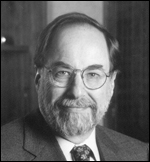
For almost 30 years, Baltimore was a faculty member at the Massachusetts Institute of Technology (MIT), where his early research dealt with examining the ability of the poliovirus to infect cells. He served as founding director of the Whitehead Institute for Biomedical Research at MIT from 1982 to 1990. From 1990 until 1994, Baltimore was president and a professor at Rockefeller University, where he received his Ph.D. in 1964.
In the area of public policy, Baltimore played an important role in creating a consensus on national policy regarding the transfer of genetic material from one organism to another. He was an early advocate of federal AIDS research and co-chaired the 1986 National Academy of Sciences committee on a National Strategy for AIDS. From 1996 to 2002, he headed the National Institutes of Health AIDS Vaccine Research Committee. Presently, he is a member of the Independent Citizens’ Oversight Committee to the California Institute for Regenerative Medicine, which deals, among other things, with using stem cells to replace diseased tissues.
Baltimore was born in New York City in 1938, and received a B.A. from Swarthmore College in 1960 with high honors in chemistry. His numerous honors include the National Medal of Science, awarded in 1999, and membership in the National Academy of Sciences, the Royal Society of London, and the French Academy of Sciences. He holds 15 U.S. patents, and has published more than 600 scientific articles and two books.
Caroline Walker Bynum
Doctor of Laws
Caroline Walker Bynum is a scholar of medieval history and religious thought whose work explores the concept of divine incarnation in its many permutations and implications. A scholar who has asserted that “wonder is the special characteristic of the historian,” Bynum has produced an extensive body of work that is esteemed both for its thoroughness and erudition as well as for the way it has challenged and reshaped assumptions about medieval religious thought and practice. As John Cogan University Professor Stephen Greenblatt has written, “In Bynum’s work the medieval word is made flesh. And this flesh is not an abstract principle but the carnal manifestation of highly individuated, stunningly creative and, above all, gendered human agents.”
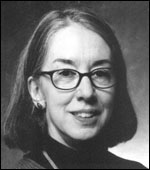
Born in Atlanta in 1941, Bynum received her B.A. from the University of Michigan in 1962 and her Ph.D. from Harvard in 1969. She has taught at Harvard, the University of Washington, and Columbia University and is currently professor of Western medieval history at the Institute for Advanced Studies in Princeton. Her publications include “Docere Verbo et Exemplo” (1979), “Jesus as Mother” (1982), “Holy Feast and Holy Fast” (1987), “Fragmentation and Redemption” (1991), “The Resurrection of the Body in Western Christianity: 200-1336” (1995), and three edited volumes, “Gender and Religion” (1986), “Body-Part Reliquaries” (1997), and “Last Things: Death and Apocalypse in the Middle Ages” (2000). Her most recent book, “Metamorphosis and Identity” (2001), explores medieval conceptions of self, survival, and mutability. Bynum is currently working on a book about the cult of the blood of Christ in the later Middle Ages.
The recipient of numerous honors and awards, Bynum was a MacArthur Fellow from 1986 to 1991, and in 1999 she was Jefferson Lecturer, the highest honor the federal government awards to a scholar in the humanities. Her book “The Resurrection of the Body” received the Ralph Waldo Emerson Prize of Phi Beta Kappa for the best book of the year on “the intellectual and cultural condition of man” and the Jacques Barzun Prize of the American Philosophical Society for the best work in cultural history.
D. Ronald Daniel
Doctor of Laws
D. Ronald Daniel, recipient of an honorary doctor of laws degree, stepped down as Harvard’s treasurer in June 2004 after 15 years in the post.

A 1954 graduate of Harvard Business School, Daniel has served Harvard extensively, as treasurer, as a member of the University’s seven-person Corporation, as a member of Harvard’s Board of Overseers, as chairman of Harvard Management Company, which invests the University’s endowment, and as chairman of the Board of Fellows of the Harvard Medical School.
Daniel is a director of McKinsey & Company Inc., having spent 12 years as managing partner, ending in 1988. He has been a management consultant for 47 years, with a particular emphasis on corporate strategy, development, and top management organization. Daniel’s early experience was in the petroleum and chemical industries, and he has worked with consumer products companies, technology-based businesses, trading and commodity enterprises, media companies, and commercial banks.
Daniel entered McKinsey & Co. from the U.S. Navy after having managed one of the country’s earliest, large-scale computer installations at the Navy’s Aviation Supply Office in Philadelphia.
Daniel received a bachelor’s degree from Wesleyan University and an M.B.A. from Harvard Business School, and holds an honorary doctor of humane letters degree from Wesleyan. He is chairman emeritus of Wesleyan’s board of trustees.
He also serves on the board of trustees of New York public television station Thirteen/WNET, of Rockefeller University, and of Brandeis University. He is a member of the Council on Foreign Relations and is an honorary trustee of the Brookings Institution. He is also a board member of Infinity Pharmaceuticals Inc., serves as nonexecutive chairman of Ripplewood Holdings LLC, and is an advisory board member of Falconhead Capital.
John Lithgow
Doctor of Arts
To call John Lithgow a star of stage, screen, and television is to sell him short, since he is also the author of five books for children and one for adults and recently made his debut as a dancer with the New York City Ballet. A committed advocate for the humanities, Lithgow has worked on numerous projects for public TV and radio. In 2000, he participated in the White House Conference on Culture and Diplomacy. He has also been involved in raising funds for various outreach and educational programs over the years, and has shown a particular interest in children and literacy; his poem “I Need a Good Book” was a feature of National Children’s Book Week in 2004.

As an actor, his versatility is such that viewers might have a hard time recognizing him from one role to the next were it not that his distinctive features and 6-foot-4-inch height make him hard to miss. The first role to bring him national attention was as the transsexual ex-football player Roberta Muldoon in the 1982 film “The World According to Garp,” which brought him an Academy Award nomination. The next year he played the earnest, well-meaning banker Sam Burns in “Terms of Endearment,” receiving another Oscar nomination. He is perhaps best-known for his recent portrayal of Dick Solomon, space alien, in TV’s “3rd Rock From the Sun.”
The son of a theatrical producer who was at one time head of Princeton’s McCarter Theatre, Lithgow graduated from Harvard College in 1967, then studied at the London Academy of Music and Dramatic Art on a Fulbright Scholarship. In addition to his numerous film credits, he has appeared on Broadway in “Dirty Rotten Scoundrels” (the musical version), “Sweet Smell of Success,” “The Changing Room,” “M. Butterfly,” and “Retreat From Moscow.” He has received two Tonys and four Drama Desk awards.
Lithgow’s fifth children’s book, “Carnival of the Animals,” was published in 2004. His first book for adults, “A Lithgow Palooza: 101 Ways to Entertain and Inspire Your Kids” is a collection of ideas and activities for parents to teach their children. Lithgow recently danced the part of the elephant in a theatrical version of “Carnival of the Animals,” choreographed by Christopher Wheeldon.
Quentin Skinner
Doctor of Laws
Quentin Skinner, recipient of an honorary doctor of laws degree, is Regius Professor of Modern History and pro-vice-chancellor of the University of Cambridge. He is an influential voice in the intellectual history of political thought and is well known for his work “The Foundations of Modern Political Thought.”
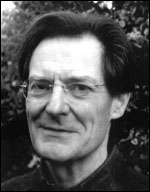
His interests are in the intellectual history of early modern Europe, with particular emphasis on the culture of the Renaissance and 17th century political philosophy, particularly that of Thomas Hobbes.
Skinner has spent much of his career at Cambridge, becoming a fellow in Christ’s College in 1962 and serving as a lecturer in history from 1967 to 1974 and professor of political science from 1979 to 1996, when he was named Regius Professor of Modern History. He was named pro-vice-chancellor in 1999.
From 1974 to 1979, he was at Princeton University’s Institute for Advanced Study. He has held many visiting appointments over the years at Australian National University, Oxford University, Washington University, Ecole des Hautes Etudes in Paris, Universite Paris X, University of Leuven, Northwestern University, College de France, and Wissenschaftskolleg zu Berlin.
Skinner has been the recipient of numerous awards and honors, including the Wolfson Literary Prize in 1979, the Pilkington Teaching Prize of the University of Cambridge in 2001, and the Benjamin E. Lippincott Award of the American Political Science Association, also in 2001. He has received several honorary degrees from the University of Chicago, University of Oxford, University of London, University of St. Andrews, University of Helsinki, University of East Anglia, Katholieke Universiteit Leuven, and Gonville and Gaius College, Cambridge.
Skinner’s numerous books have been translated into a score of languages.
Charles M. Vest
Doctor of Laws
Charles M. Vest is president emeritus of the Massachusetts Institute of Technology (MIT) and a member of the institute’s mechanical engineering faculty. He served as 15th president of MIT from 1990 to 2004. During that time, his priorities included building a stronger international dimension into education and research, developing better relations with industry, enhancing racial and cultural diversity within MIT, and rebuilding public understanding and support of higher education and research.
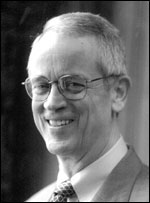
Vest has been a member of the President’s Committee of Advisers on Science and Technology during both the Bill Clinton and George W. Bush administrations. In 2004, he was appointed by President Bush to the Commission on the Intelligence Capabilities of the United States Regarding Weapons of Mass Destruction. Vest chaired the U.S. Department of Energy Task Force on the Future of Science Programs from 2002 to 2003. From 1990 to 1999, he served on the Massachusetts Governor’s Council on Economic Growth and Technology, and in 1993 and 1994 he chaired the President’s Advisory Committee on the Redesign of the Space Station.
Before assuming the MIT presidency, Vest was provost and vice president for academic affairs of the University of Michigan. Prior to that he had been dean of engineering and associate dean of academic affairs. After receiving a Ph.D. degree from the university in 1967, Vest joined its mechanical engineering department and became a full professor in 1977.
Vest was elected a member of the National Academy of Engineering in 1993. His research interests are in the thermal sciences and in the engineering applications of lasers and coherent optics. He is the author of many papers and a book on these subjects. He sits on the boards of directors of IBM and E.I. du Pont de Nemours and Co.
Edward Witten
Doctor of Science
Edward Witten is the Charles Simonyi Professor of Physics at the Institute for Advanced Study in Princeton, N.J. He is a world leader in string theory, which attempts to describe all the known forces of nature in a unified way, a goal sought but unattained by Albert Einstein, a former faculty member of the Institute for Advanced Study. For his work in this and other areas of physics, Witten was awarded a 2002 National Medal of Science, the nation’s highest honor for researchers in the fields of science and engineering.
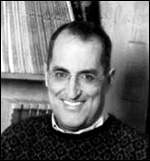
Witten is well known for combining mathematics and physics to yield deep insights into the character of the universe. One such insight arose from combining a theory of physics, known as gauge theory, with the mathematics of knots. This work led to a revolution in mathematics that included a classification of the higher dimensions in space, beyond the familiar ones of length, breadth, depth, and time. For this, Witten became, in 1990, the only theoretical physicist ever to win the Fields Medal, the most prestigious award in mathematics.
His earliest papers produced advances in the theory that describes interactions among the fundamental particles (quarks and gluons) that make up all matter. Other work produced a new proof of a key part of Einstein’s general relativity theory.
Witten received a 1982 MacArthur Fellowship, the 1985 Einstein Medal from the Einstein Society of Berne, Switzerland, the 1985 Dirac medal from the International Center of Theoretical Physics, and numerous other awards. Author of more than 250 scientific papers and co-author of the book “Superstring Theory,” he is a fellow of the National Academy of Sciences, the American Academy of Arts and Sciences, and the American Philosophical Society. Witten earned his B.A. degree from Brandeis University in 1971 and his Ph.D. from Princeton University in 1976. He was a professor of physics at Princeton before becoming Simonyi Professor at the Institute of Advanced Study in 1997.
– Compiled by William J. Cromie, Ken Gewertz, Alvin Powell




